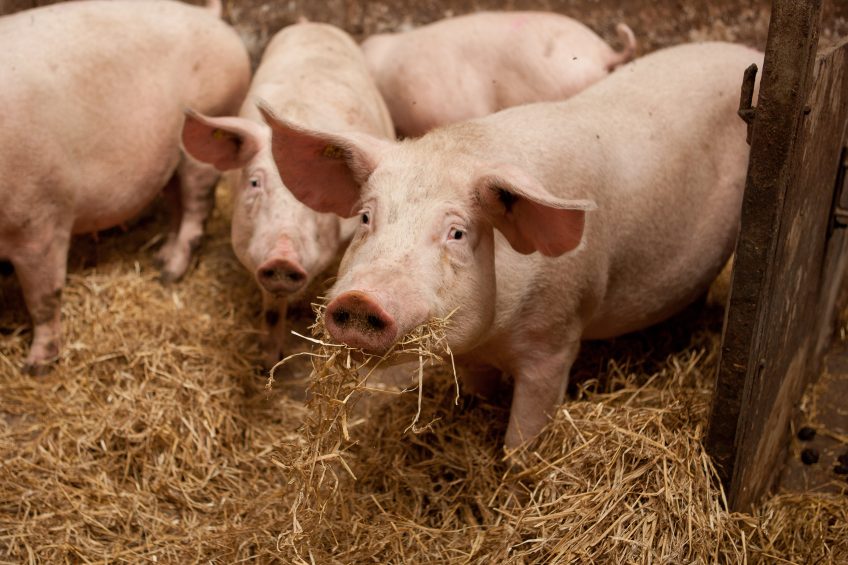A systematic approach to sustainable pork

In striving for a sustainable production, one Dutch pig cooperative puts economic, environmental and social concerns at the forefront of everything they are doing.
The true definition of sustainable agriculture is meeting today’s needs – economically, environmentally and socially – without compromising future needs. Without a concerted effort, though, meeting the needs of all 3 pillars of sustainability is difficult. Often-times one pillar is left by the wayside and this is usually the economic one. In order to address all 3 sustainability pillars in a way that would make them proud, 2 Dutch pig farmers formed a cooperative, which allows them to work alongside slaughterhouses, wholesalers, butchers, cold meat producers, caterers and retailers. Today, 300 farmers are working within the chain. Working together as the Sustainable Pork Value Chain Foundation (Stichting Keten Duurzaam Varkensvlees or KDV for short) has allowed them to improve production and enhance sustainability at the farm level.
Keeping ahead of the market
Hans Verhoeven and Mark van den Eijnden of De Hoeve farm in Valkenswaard jointly founded KDV in 1997. Today, De Hoeve manages the entire KDV chain; they are responsible for the certification of pig farmers and all other partners within the chain. In addition to certification, De Hoeve also provides and initiates all KDV innovation projects. The innovation projects are what keep them one step ahead of the market, allowing them to react to anticipated change in a timely fashion.
“We start with research to see what’s going to be the next big issue in the next 5 years,” said Jaap de Wit, chairman of the KDV chain. Mr de Wit is responsible for the purchasing of all pigs within the chain. To determine what will be the next big issue in 5 years, the group conducts extensive market research. Once that issue is determined, possible solutions are discussed at all levels of the value chain. Once a potential solution is found, it is tested at the farm level before being widely implemented.
In 2009, the group determined that antibiotic reduction would be the next big issue in livestock production. They were right. They’ve since improved management practices to lower their use and moved on to new challenges. The next big thing in pork production, said Mr de Wit, will be individual monitoring through the use of RFID tags. Normally, pigs are monitored as a group, but Mr de Wit says using RFID tags will allow them to monitor health, feed and water intake and genetics on the individual level. It will also allow them to gather data on temperature, and CO2. “Our farmers are continually developing new ways of working more sustainably,” said Mr de Wit. “They’re always seeking improvements in the welfare of their animals and the environment.”
Not all of the 300 pig farmers within the value chain will try the new technology. For now, 73 are signed up to test the RFID tags, for instance. Mr de Wit says they use the exact same technology and collect the exact same data. Doing so, allows them to see where they’ve made improvements on their farm, but also allows them to compare results with fellow farmers. “If it really works out like it does now, we think it will be the standard,” said Mr de Wit. “They all use the same tags and software, and collect the same data. We support their innovations and work with experts in a wide range of fields,” he continued. “Specialist pig vets visit the farmers and together they look at what’s needed there for optimum animal health.”

Energy-neutral pig farming
At the flagship farm in Valkenswaard, KDV is experimenting with technological developments that could make their farms energy neutral. These include solar panels, efficient ventilation methods and smarter heating technology. All of this is being done under KDV labs. The group is also looking at how to improve animal welfare. Together, for instance, they decided to keep sows and piglets together for 4 weeks without exception. They’re also trying to address more challenging issues, like getting rid of tail docking. “We are doing some tests on that,” said Mr de Wit, “but some are really difficult.”
KDV is also working on a project that addresses the environmental pillar of sustainability. “We just built the stable of the future,” explained Mr de Wit. “You remove the manure every day like a toilet. When you remove it you get a fresh and healthy environment. When manure is removed, so too is methane. When it’s removed quickly it contains a lot of gas,” said Mr de Wit. That gas is then used on the farm as energy. “It’s also better for the neighbours,” he adds. “There’s no smell around the farm if you remove the methane.”
Profitability is an important component of the value chain. Mr de Wit says farmers are paid a good price for what they produce. Premiums are paid for quality, and better management means more meat, which also ensures a higher price. But it’s not about the money. It’s a systemic approach that brings together like-minded individuals whose goal is the most sustainable production possible. “We examine where there’s room for improvement, test innovations and work together to achieve energy-neutral pig farming and to put healthy and tasty meat on your plate,” concluded Mr de Wit. “We don’t do all this for profit. We do it because we believe in it.”












